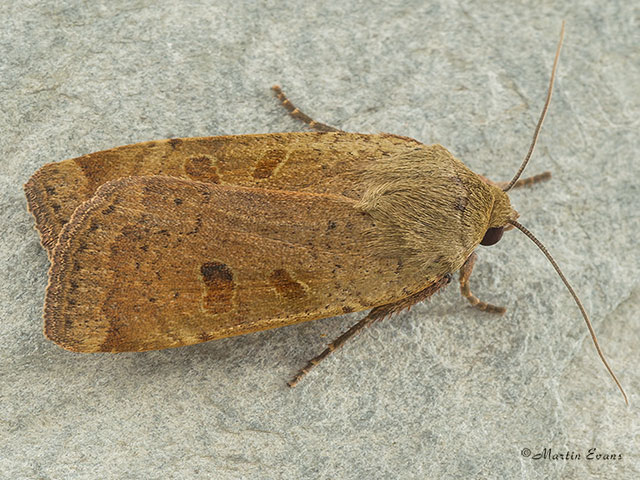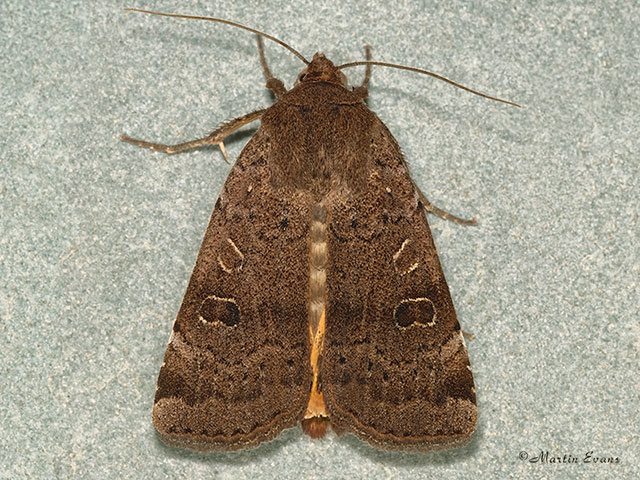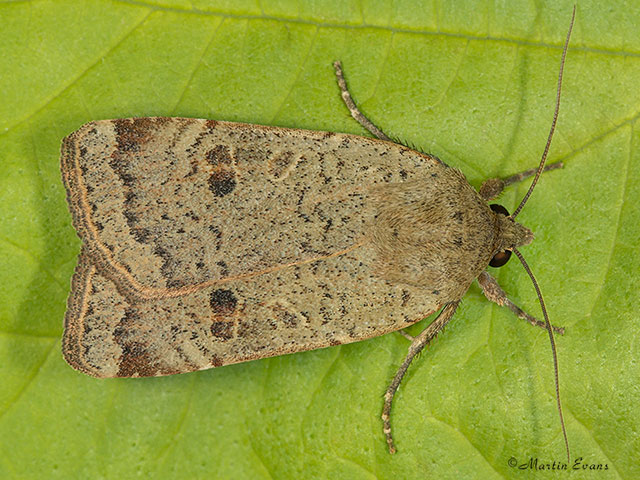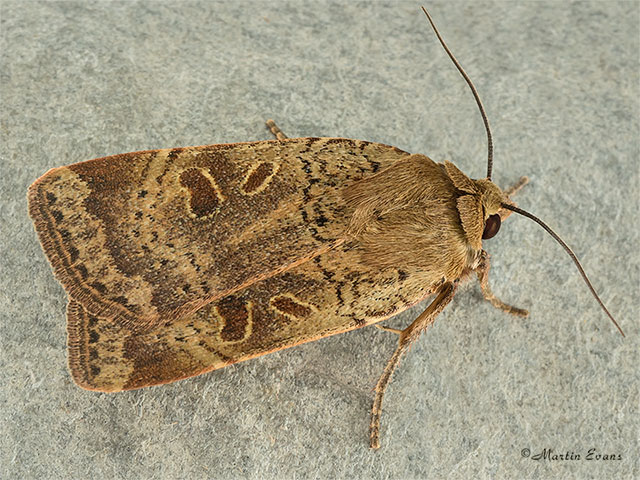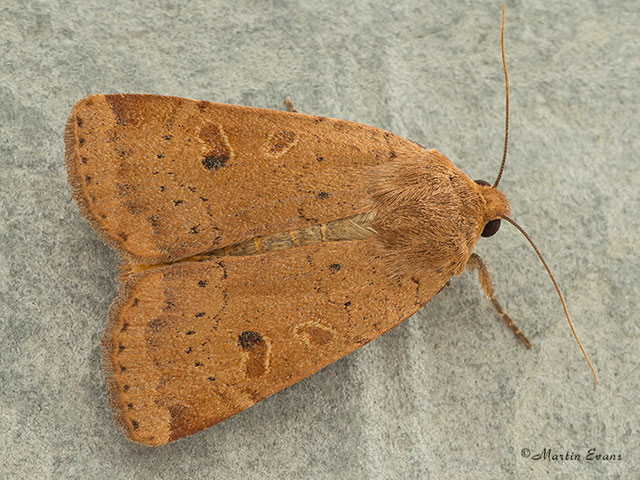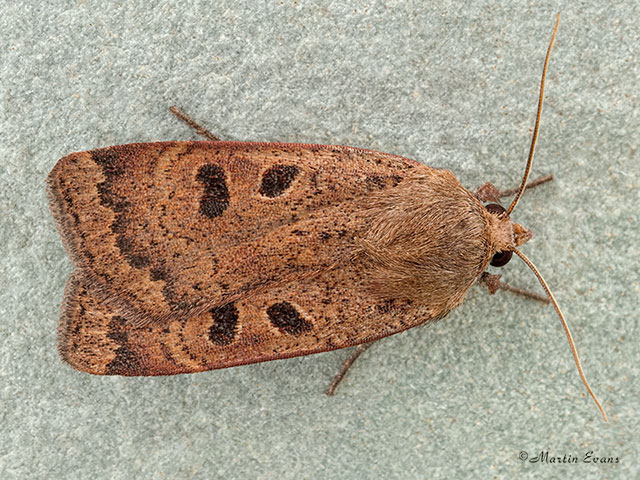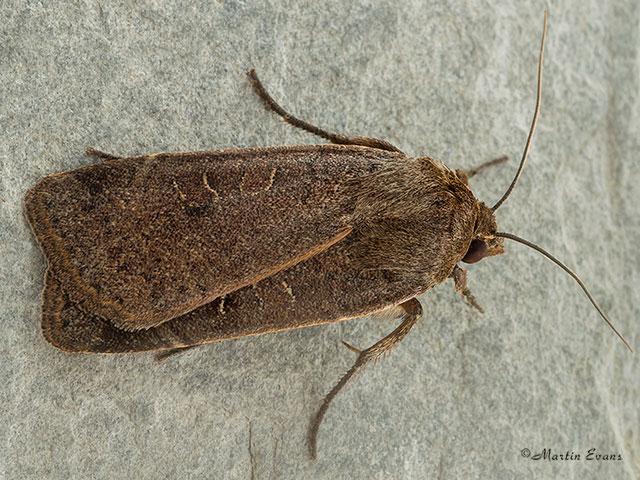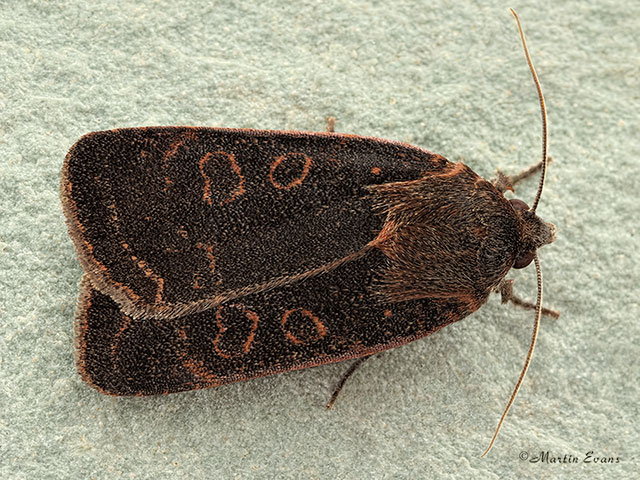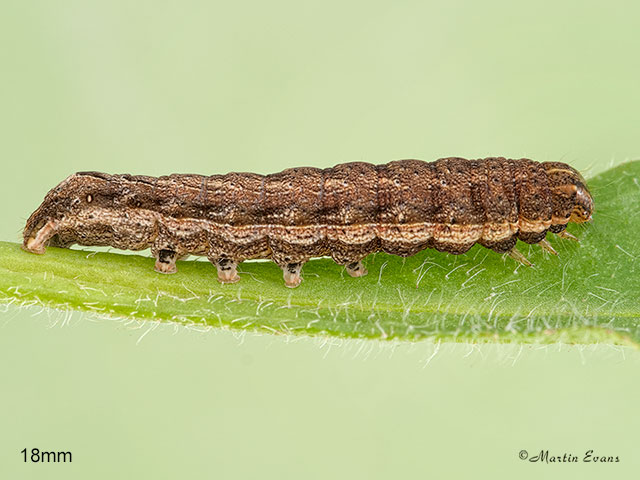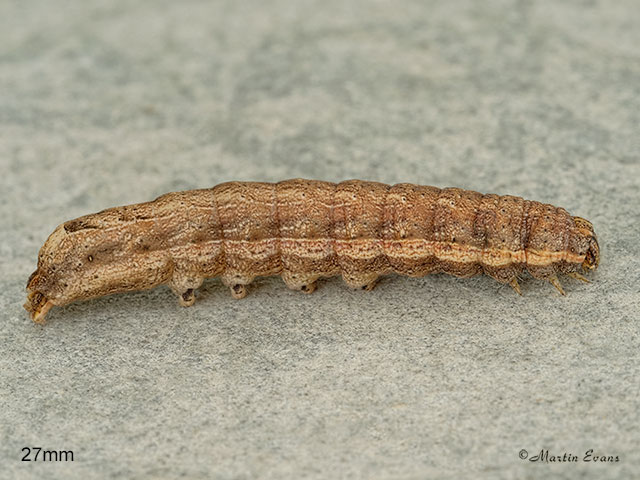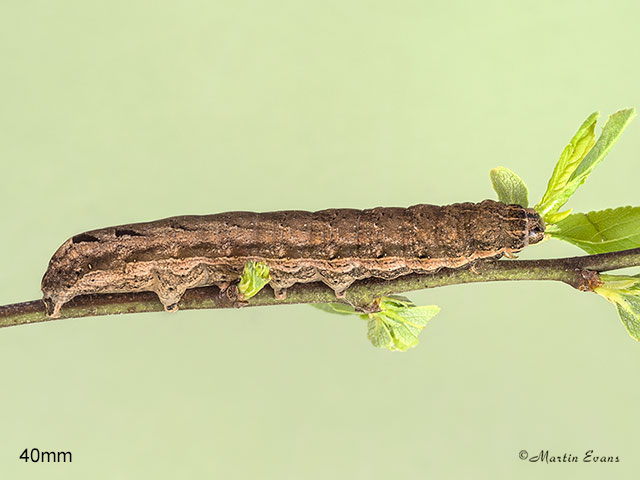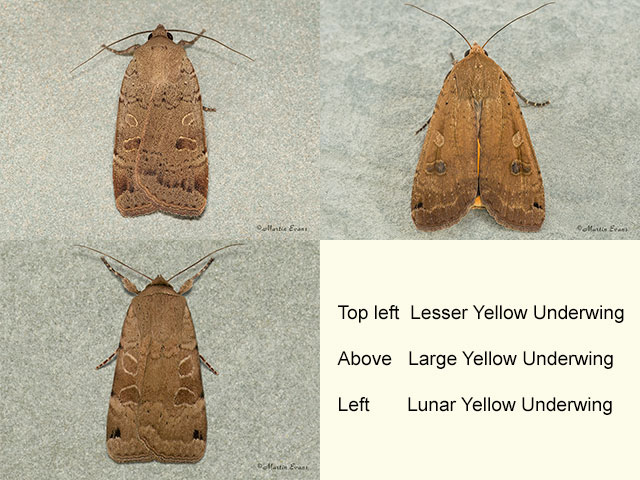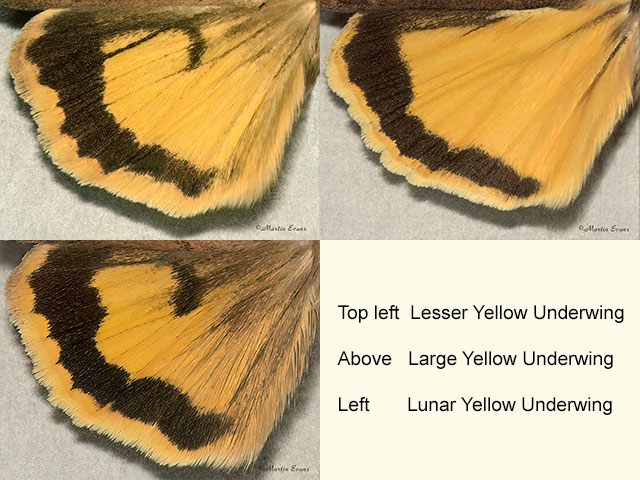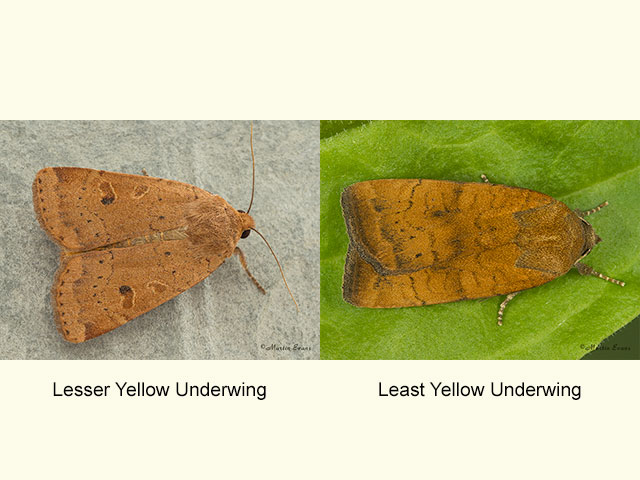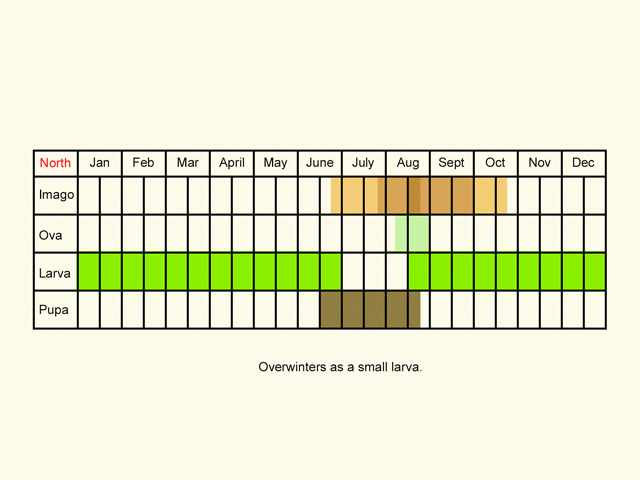Noctuidae
73.345 Lesser Yellow Underwing Noctua comes Hübner, [1813]
Common
Similar species: Large Yellow Underwing Noctua pronuba is larger (21 to 26mm) and has a black dash on the leading edge near the tip of the forewing. Lunar Yellow Underwing Noctua orbona is of a similar size (17 to 20mm) and also has a black dash on the leading edge near the tip of the forewing. Least Yellow Underwing Noctua interjecta caliginosa is smaller (14 to 15mm) than similar colour forms of Lesser Yellow Underwing with a dark outer edge to the forewing.
Forewing: 16 to 21mm
Habitats: Most habitats, from mountain moorland, woodlands, grasslands, heathland, marshland and sand dunes to gardens.
Habits: The moth visits flowers after dark and is attracted to sugar and light.
Foodplant: The polyphagous larva feeds nocturnally on Common Nettle, Foxglove, Red Clover, Broad-leaved Dock and other herbaceous plants. Then in the spring it feeds on woody plants such as Hawthorn, sallows, Bramble, Broom and Blackthorn. It hides in loose soil or leaf litter during the day. Pupation takes place in an earthen cocoon under the soil.
On the European mainland it has also been recorded feeding on bedstraw, sorrels and Heather.
